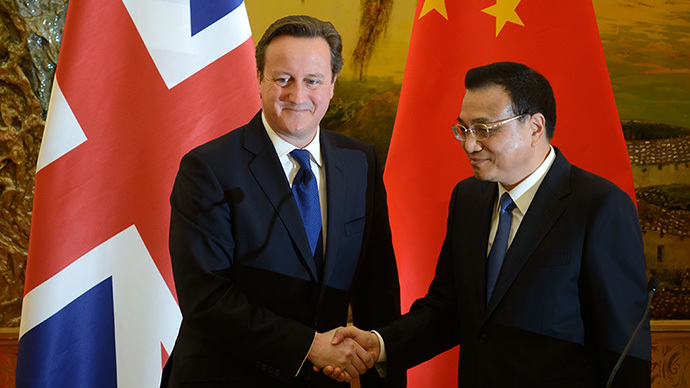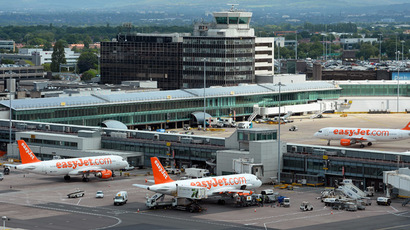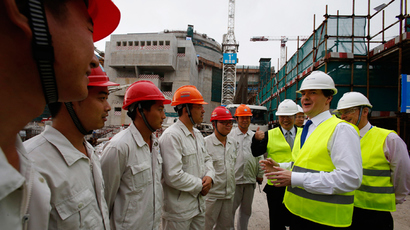Cameron lobbies for a trillion EU-China trade deal

UK Prime Minister David Cameron, along with 120 business people, has begun an official visit to China. The largest British mission of its kind seeks to lay ground for $1 trillion free trade deal between China and the EU.
Mr Cameron will negotiate tariff reductions in 20 key sectors including vehicles, pharmaceuticals, mechanical and electrical goods, which together account for 36 percent of UK exports to China.
In the Chinese weekly news magazine Caixin, David Cameron said: "Put simply, there is no country in the western world more open to Chinese investment, more able to meet the demands of Chinese consumers, or more willing to make the case for economic openness in the G8, the G20 and the European Union. And there is no country more ready to forge a dialogue of mutual respect and understanding that can address issues of concern and advance our shared interests in the world."
David Cameron is the first leader of a western country to meet the Chinese government after the third plenum on November 12. Then China announced its biggest economic turnaround in two decades, pledging more private competition in dominant state industries.
The UK Prime Ministers' intention to boost EU-China trade will irritate the European Commission, which fears lower tariffs will immediately flood the 28-nation market with cheap Chinese goods, Reuters reports.
Splitting over Tibet
David Cameron made a decision to distance Britain from the Dalai Lama during the trip to China as the price of restoring full business and diplomatic relations with Beijing.
After Cameron met Dalai Lama in London in May 2012, Beijing demanded the head of the UK government "recognize the mistake". The Chinese government imposed a ban on British visits, and considerably reduced the number of trips by British businessmen. In May 2013 Cameron told the parliament that the United Kingdom "does not support Tibetan independence ".
Diplomatic relations between China and the UK were hurt after Cameron and Deputy Prime Minister Nick Clegg, met the Dalai Lama, the spiritual leader of Tibet, at St Paul's Cathedral in May 2012. China considers the Dalai Lama as a “wolf in monk’s robes” who insists on Tibetan independence and takes any official meeting with him as part of a Western plot to divide China, the Financial Times explains.
"Let us be absolutely clear: this Government has not changed the long-standing British policy towards China, and China and Tibet, and we do want to have a strong and positive relationship with China, which I believe is to our mutual benefit. The Chinese Government is aware of our policy on Tibet. We recognize Tibet as part of China. We do not support Tibetan independence, and we respect China’s sovereignty", said the Prime Minister.
"Cameron wants to open a new page in the relations between Great Britain and China which were saddened by its meeting with Dalai Lama", – the official representative of the Prime Minister’s office emphasized to the ITAR-TASS correspondent.
UK-China business ties
China and UK have recently been actively developing business ties. In October the two countries agreed a multibillion dollar nuclear cooperation agreement over Hinkley point - the first UK nuclear deal in 20 years, which will deliver energy to 7 million homes from 2023.
Then British Chancellor George Osborne said Beijing may be allowed to invest up to 100 percent in the UK’s nuclear market.
Another joint venture included China’s multi-million investment in the UK first 'airport city' - an area surrounding the UK's third busiest airport at Manchester.














